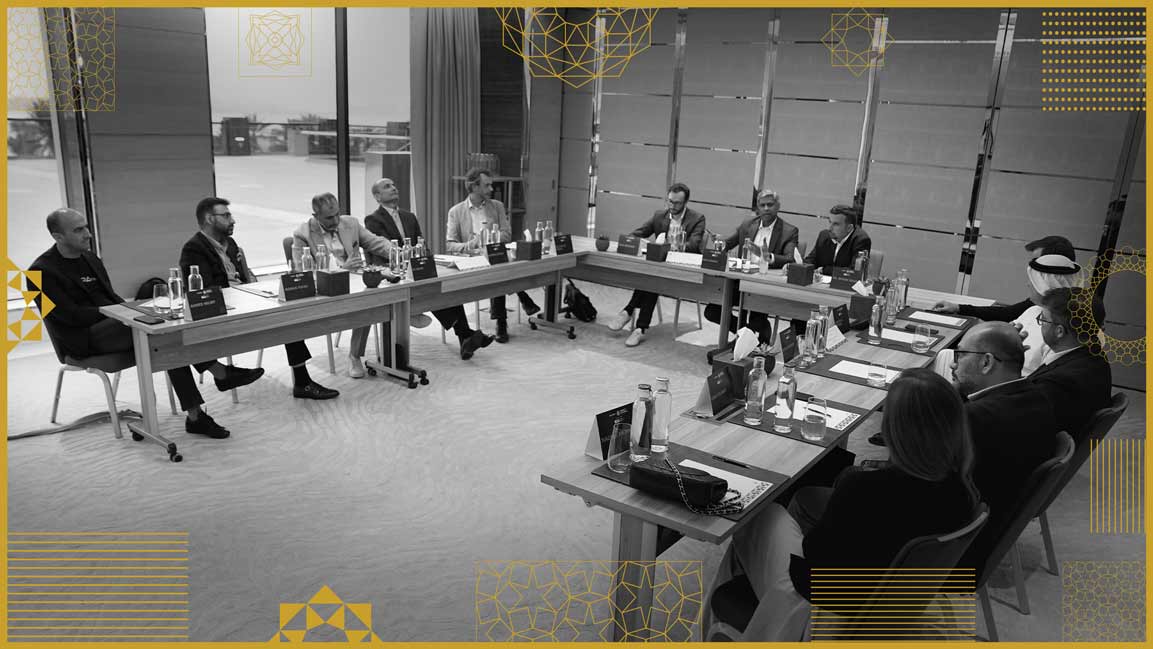- | 10:00 am
Are organizations well-equipped to move to the next phase of adopting GenAI?
Impact Council's AI subcommittee members deliberated on the future of GenAI adoption across businesses.

Like cloud computing before it, generative AI (GenAI) is changing how business is done. It keeps getting smarter, but with these advancements comes great opportunity—but for many, it also brings great unease.
In the Middle East, organizations have lingering questions about their maturity and value with Generative AI (GenAI.)
Partnering with Boston Consulting Group, Fast Company Middle East’s Impact Council Artificial Intelligence subcommittee members deliberated on the challenges, opportunities, and future of GenAI within their businesses.
There are three dimensions to remember when analyzing use cases, says Theo Breward, Principal at BCG. The first one is managing costs, whereby a company optimizes the choice of models to generate a use case that doesn’t cost more than it saves.
The second is latency, which ensures that all the models are deployed in time to deliver a timely answer. The third dimension is the accuracy of the output, making sure that it is at the required level.
“Mature organizations manage to balance out the deployment of their use case with these three dimensions in mind, costs, latency, and accuracy, and making all of that come together is extremely difficult,” he adds.
Akram Awad, Partner and Global Lead for Smart Cities, BCG, says that the hype of GenAI has passed, and now it is time to examine its more crucial aspects. He suggests going back to the foundation, understanding what value AI brings to the organization, building the right building blocks, and navigating the wide spectrum of tools and models to identify what matters for the organization.
“In the region, the figures show that there is a lot of positivity, excitement, and confidence around AI compared to other parts of the world, but we need to ensure a balance between the excitement and the right guardrails to ensure that we continue to deliver responsible AI across the board.”
ADOPTING AI
For the past few years, AI has been the talk of nearly every organization, becoming an important part of daily operations.
Hamed Al Herbawi, Head of Enterprise Technology at Sharjah Investment and Development Authority (Shurooq,) predicts that those not using AI will face many challenges soon.
Senior Director at e& enterprise, AI and Smart Data Solutions Business, Kamran Ahsan, believes AI’s real success lies in its adoption and democratization. “We need to collectively build an ecosystem, whether it pertains to the infrastructure, the platforms, the applications, or the use cases.”
While AI catches on to many businesses, Hywel Benbow, Senior Vice President of Global Data, AI, and Analytics at GEMS Education, draws attention to the foundation.
“Data and AI will grow, and the use cases will increase massively, but there’s a key to not forgetting the foundation. GenAI is only based upon good data and good processes.”
Although AI applications are increasing across many different businesses, Dr. Patrick Noack, Executive Director of Future Foresight and Imagination, Dubai Future Foundation, emphasizes misuse.
“I am concerned about misuses in the future of AI, and a worry that keeps me up at night is that we might be at a time when the risk is massive, and we’re unable to roll back what we’ve unleashed.”
GENAI ACROSS SECTORS
There are various uses for AI within different sectors. From increasing efficiency to improving patient care, the healthcare industry has been an active adopter of AI tools.
Rizwan Tufail, Chief Data Officer at PureHealth, says that they are re-envisioning the future of healthcare. “We’re empowering clinicians, hospital leaders, and patients to really think differently about their health, to make better decisions about their own health, to improve health outcomes, and to improve population health overall.”
On the same note, Alex Aliper, President of Insilico Medicine, says that GenAI has already demonstrated its ability to overcome some of the bottlenecks in drug discovery, allowing for faster and cheaper means.
“We have a rapidly aging population, which is a problem for a global economy. So we strive to use GenAI to discover more therapeutic and preventative options for people,” he adds.
The session also discussed challenges related to having more multicultural models involving localized sponsorship to grow investment in research and skill sets.
“Everybody’s going through the same challenge. We exchanged some brilliant ideas to understand how to get there even faster than we think we can,” says Vinay Kumar, Chief Technology Officer for Landmark Group.
In the fintech sector, Nadine Mezher, co-founder of Sarwa, explains that GenAI’s next phase will focus on balancing user experience, data security, safety, and the regulatory framework.
“AI has been part of our life in our day-to-day for a while now, and it’s becoming more adaptive in terms of the next generation, not only in the way they use it but in how they’re learning to build it. The reality is AI is a tool that can enhance everything we do,” she adds.
Touching on financial inclusivity and how AI can be used for risk management and behavior analysis, Ahmed Helmy, VP of Customer Experience, Astratech, says, “We are so keen to provide this service, and not just for individuals, but also for micro-entrepreneurs and SMEs that depend on accessing financial services that are not available through banking.”
Describing AI as the new electricity and a revolution, Ali Katkhada, Chief Information Officer of DEPA Group, says, “As more business cases make more sense of AI, all corporations have to embrace it to take it more seriously.”







































